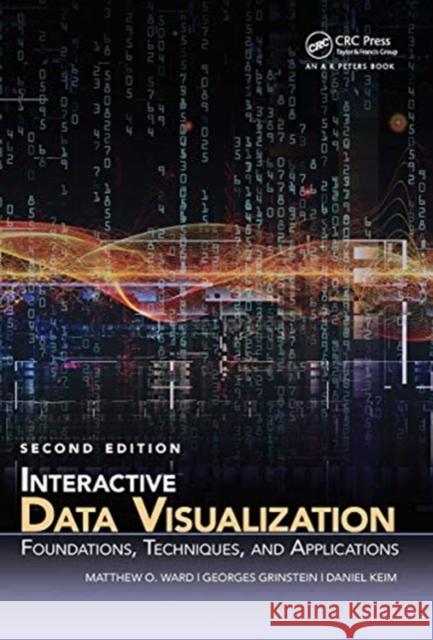Interactive Data Visualization: Foundations, Techniques, and Applications, Second Edition » książka
Interactive Data Visualization: Foundations, Techniques, and Applications, Second Edition
ISBN-13: 9780367783488 / Angielski / Miękka / 2021 / 578 str.
An Updated Guide to the Visualization of Data for Designers, Users, and ResearchersInteractive Data Visualization: Foundations, Techniques, and Applications, Second Edition provides all the theory, details, and tools necessary to build visualizations and systems involving the visualization of data. In color throughout, it explains basic terminology and concepts, algorithmic and software engineering issues, and commonly used techniques and high-level algorithms. Full source code is provided for completing implementations. New to the Second EditionNew related readings, exercises, and programming projects Better quality figures and numerous new figuresNew chapter on techniques for time-oriented dataThis popular book continues to explore the fundamental components of the visualization process, from the data to the human viewer. For developers, the book offers guidance on designing effective visualizations using methods derived from human perception, graphical design, art, and usability analysis. For practitioners, it shows how various public and commercial visualization systems are used to solve specific problems in diverse domains. For researchers, the text describes emerging technology and hot topics in development at academic and industrial centers today. Each chapter presents several types of exercises, including review questions and problems that motivate readers to build on the material covered and design alternate approaches to solving a problem. In addition, programming projects encourage readers to perform a range of tasks, from the simple implementation of algorithms to the extension of algorithms and programming techniques.Web ResourceA supplementary website includes downloadable software tools and example data sets, enabling hands-on experience with the techniques covered in the text. The site also offers links to useful data repositories and data file formats, an up-to-date listing of software packages and vendors, and instructional tools, such as reading lists, lecture slides, and demonstration programs.











